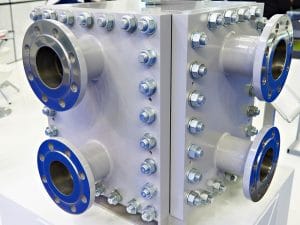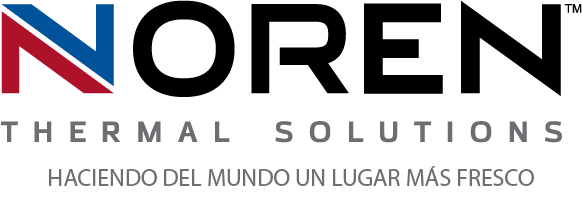 Eco-friendliness wasn’t always a significant, wide-spread concern among most industries. However, saving money always has been, and when it comes to streamlining thermal management costs, heat exchangers have consistently been the preferred solution for decades. Now that minimizing environmental impacts and implementing greener, more eco-friendly solutions have become industry standards, heat exchangers continue to excel thanks to their more energy and cost-efficient thermal management processes.
Eco-friendliness wasn’t always a significant, wide-spread concern among most industries. However, saving money always has been, and when it comes to streamlining thermal management costs, heat exchangers have consistently been the preferred solution for decades. Now that minimizing environmental impacts and implementing greener, more eco-friendly solutions have become industry standards, heat exchangers continue to excel thanks to their more energy and cost-efficient thermal management processes.
Their unique heat transfer methods
Reducing electrical thermal management costs was such a challenge because the traditional methods of using air conditioners or air compressors required the consumption of large amounts of energy. Heat exchangers tackled the challenge by changing the approach to enclosure cooling entirely. Rather than overcoming waste heat with chilled air, the thermal solutions involve transferring the heat before it can accumulate into pockets. This is accomplished with eco-friendly equipment such as thermosyphons, which utilize natural processes like phase-change cooling to continuously transfer heat away from sensitive electrical components. Such processes require significantly less energy and less complex equipment, with fewer external parts than more traditional solutions.
Their ability to repurpose heat
Transferring waste heat gives heat exchangers the ability to contribute more to a company’s eco-friendliness than just lowering energy costs. Certain operations can also benefit from the repurposing of electrical waste heat, which can be accomplished with custom heat exchangers that can transfer the waste heat where it can be repurposed. For example, the heat can be applied to wastewater treatment processes that require the sustained application of heat, allowing companies to further reduce costs without compromising other essential eco-friendly processes. Other, more industry-specific applications (such as food pasteurization) have also been streamlined thanks to the innovative use of heat exchangers to repurpose electrical waste heat.
Their limited use of energy
Their limited use of energy was one of the first well-known benefits of heat exchangers, and it remains one of their most significant advantages. As companies implement newer, more advanced, and more powerful technologies, the need to conserve energy and implement alternative energy sources has grown increasingly more urgent. Heat exchangers continue to advance to keep with that demand, providing higher-performance thermal management solutions that continuously require minimal energy and maintenance. Heat exchangers also continue to make innovating newer technologies easier, as engineers and designers have greater freedom in their designs thanks to their versatility.
For more information about what makes heat exchangers so eco-friendly, call Noren Thermal Solutions in Taylor, TX, at 866-936-6736.







